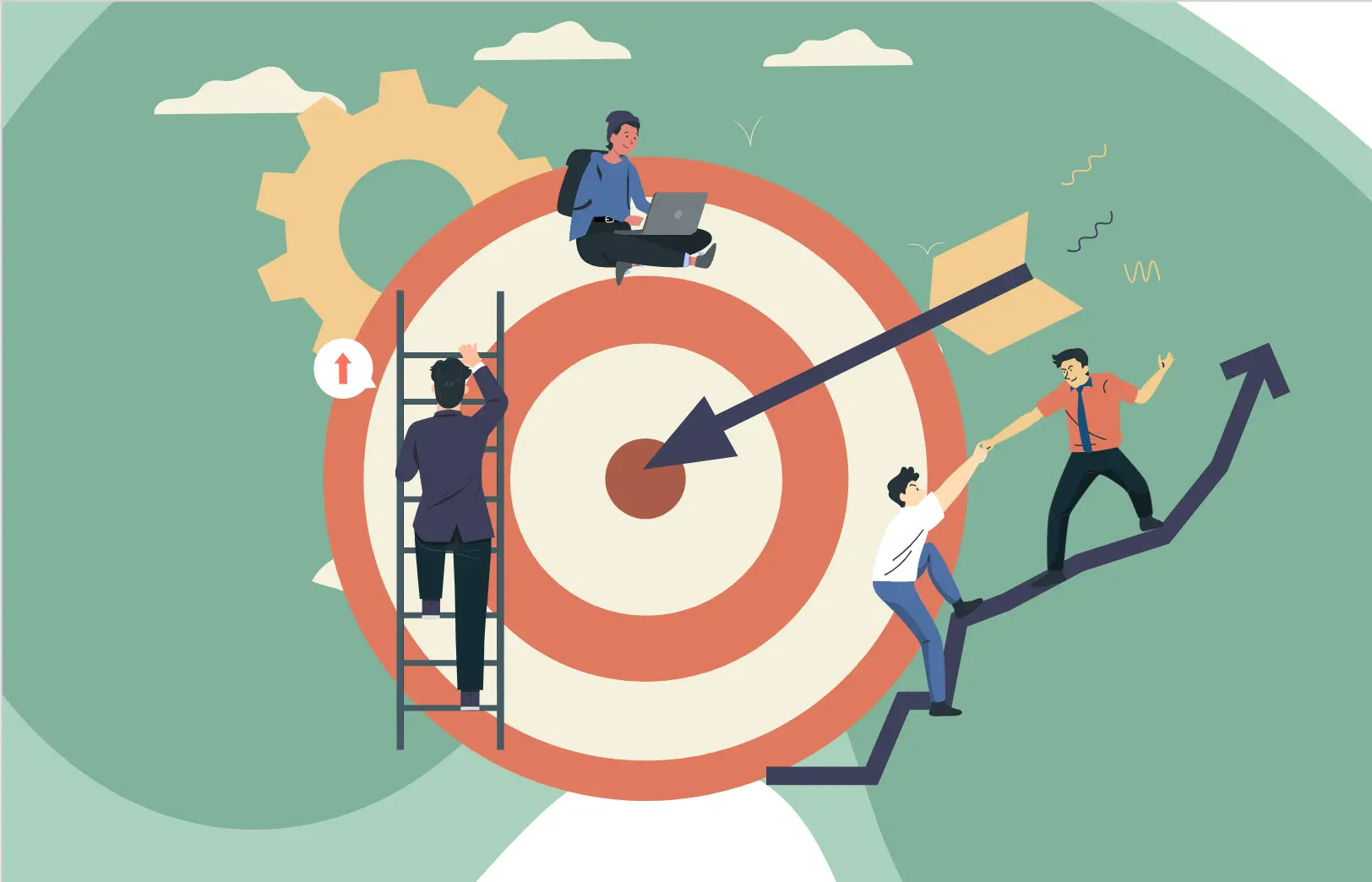It feels like a modern-day superpower, doesn’t it? The ability to just sit down and focus. In a world buzzing with notifications, endless feeds, and a to-do list that never seems to shrink, maintaining focus can feel like an uphill battle. If you’re struggling to concentrate at work, finding it hard to finish what you start, or just feel like your brain has too many tabs open, you’re in the right place. This guide offers real, evidence-based strategies that can help you strengthen your attention span, improve your mental clarity, and get back in control of your day.
Understanding Focus and Concentration
Before we dive into the “how,” it helps to understand the “what.” What is focus, really? From a cognitive perspective, focus is the brain’s ability to direct its resources toward a single stimulus or task while filtering out other distractions. This heavy lifting is managed by the prefrontal cortex, your brain’s command center.
Think of your brain’s attention like a spotlight. You can have sustained attention, where you keep the spotlight on one thing for a long time (like reading a book), or selective attention, where you keep the spotlight on something specific despite other things happening around you (like talking to a friend in a loud cafe). Both have become harder in the digital age because of something called cognitive load—the total amount of mental effort being used in your working memory. When we’re flooded with information, our cognitive load gets maxed out, and the spotlight of our focus starts to flicker.

Common Obstacles That Prevent Focus
If you’re struggling to concentrate, it’s not a personal failing. Our brains are up against some serious modern challenges.
- Digital Distractions: The most obvious culprit. Smartphones, social media feeds, and a constant stream of notifications are engineered to hijack our attention.
- Environmental Factors: A noisy office, a cluttered desk, or frequent interruptions from family or colleagues can constantly pull you out of the zone.
- Physiological Causes: You can’t focus well on an empty tank. Things like sleep deprivation, poor nutrition, and dehydration directly impact your brain’s ability to function.
- Psychological Factors: Stress, anxiety, and general mental fatigue drain your cognitive resources. The pressure to multitask also plays a huge role; switching between tasks can slash your efficiency.
Create a Distraction-Free Environment
You can’t win a battle if your battlefield is chaotic. The first step to better focus is to control your surroundings.
Start with your physical space. A clean, organized desk reduces visual clutter and the mental noise that comes with it. If you’re in a loud environment, noise-canceling headphones can be a game-changer.
Then, tackle your digital space. Turn off all non-essential notifications on your phone and computer. Use website blockers or apps that limit your time on social media during work hours. It also helps to set clear boundaries. Let your colleagues or family know when you’re in “deep work” mode and shouldn’t be interrupted unless it’s an emergency, which is essential for maintaining a healthy work life balance.

The Pomodoro Technique and Time Blocking
One of the most effective ways to manage your attention is to work with its natural rhythm, not against it. The Pomodoro Technique is a fantastic tool for this.
Here’s how it works:
- Choose a single task to work on.
- Set a timer for 25 minutes.
- Work without interruption until the timer goes off.
- Take a 5-minute break.
- After four “Pomodoros,” take a longer break of 15-30 minutes.
This method works because it breaks down large tasks into manageable chunks, creating a sense of urgency and making it easier to start. It’s a powerful strategy, especially if you’re trying to figure out how to stay focused at work. You can combine it with time blocking, where you schedule these focus sessions directly into your calendar, treating them like important appointments.
Practice Mindfulness and Meditation
Focus is a muscle, and mindfulness is how you train it. Mindfulness is simply the practice of paying attention to the present moment without judgment. Research has shown that regular meditation can increase gray matter in the prefrontal cortex—the part of your brain responsible for attention control.
You don’t have to sit for hours. A simple breathing exercise can make a big difference:
- Sit comfortably and close your eyes.
- Bring your attention to your breath.
- Notice the sensation of the air entering and leaving your body.
- When your mind wanders (which it will), gently guide your attention back to your breath.
Doing this for just 5-10 minutes a day can strengthen your ability to notice when you’re distracted and consciously choose to refocus.
Prioritize Sleep Quality
Sleep is non-negotiable for cognitive function. When you’re sleep-deprived, your prefrontal cortex is impaired, making it nearly impossible to concentrate, manage impulses, or think clearly.
Aim for 7-9 hours of quality sleep per night. You can improve your sleep hygiene by:
- Sticking to a consistent sleep schedule, even on weekends.
- Creating a dark, cool, and quiet bedroom environment.
- Limiting screen time for at least an hour before bed, as the blue light can interfere with melatonin production.

Optimize Your Nutrition for Brain Health
The food you eat is fuel for your brain. To optimize for focus, try to incorporate more brain-healthy foods into your diet. These include foods rich in omega-3 fatty acids (like salmon and walnuts), antioxidants (blueberries, leafy greens), and complex carbohydrates (oats, whole grains) for sustained energy.
Staying hydrated is also critical; even mild dehydration can impair concentration. And while caffeine can provide a temporary boost, be mindful of your intake to avoid the dreaded afternoon crash. Pairing your coffee with a balanced meal can help stabilize your energy levels.
Single-Task Instead of Multitask
The idea that we can effectively multitask is one of the biggest myths of productivity. Our brains are not wired to focus on more than one complex task at a time. What we call multitasking is actually rapid task-switching.
Research shows that this constant switching can reduce efficiency by up to 40% and increase the likelihood of errors. Instead, practice single-tasking. Close all unnecessary tabs and applications. Put your phone in another room. Commit to finishing one thing before moving on to the next. You’ll be surprised by how much more you can accomplish.
Exercise and Physical Movement
Physical activity is one of the best things you can do for your brain. Exercise increases blood flow, which delivers more oxygen to your brain, and releases neurotransmitters like dopamine and norepinephrine that are crucial for focus and attention.
You don’t need to run a marathon. Even a brisk 20-minute walk can have immediate benefits for your concentration. Try incorporating short movement breaks throughout your day. Walk around during a phone call, do a few stretches, or step outside for some fresh air.
Set Clear Goals and Priorities
You can’t hit a target you can’t see. A lack of focus often stems from a lack of clarity about what you should be working on. Having clear goals gives your attention a direction.
Use a simple framework like SMART goals (Specific, Measurable, Achievable, Relevant, Time-bound) to define what you want to accomplish. Each morning, identify your top 1-3 most important tasks for the day. This simple act of prioritization prevents you from getting pulled into less important, reactive work. Knowing your priorities is the key for anyone wondering how to stay focused on your goals.

Train Your Brain With Focus Exercises
Just like lifting weights builds muscle, you can train your brain to concentrate better over time. These exercises don’t have to be complicated.
Try a “five-minute focus check.” Set a timer for five minutes and try to read a book or an article without your mind wandering. Each time you notice your thoughts drifting, gently bring your attention back to the text. Initially, you might have to do this dozens of times, but with practice, the intervals between distractions will grow longer. These exercises are particularly helpful for anyone needing to know how to stay focused when studying for long periods.
Take Strategic Breaks
Your brain’s attention resources aren’t infinite. They get depleted with use, and breaks are essential for recovery. The key is to take strategic breaks that actually recharge you.
Scrolling through social media on your break doesn’t count—it just gives your brain more information to process. Instead, try to disconnect completely.
- Get up and stretch.
- Walk outside for a few minutes.
- Listen to a song.
- Chat with a coworker about something other than work.
- Just sit quietly and let your mind wander freely.
Breaks aren’t a sign of weakness; they are a fundamental part of a sustainable and productive workflow.
Ultimately, learning how to stay focused is a skill, not an innate talent. It takes practice, patience, and a willingness to create an environment where your brain can do its best work. By implementing these strategies, you can reclaim your attention and achieve a new level of clarity and productivity. Here at www.notonetype.org, we believe that understanding how your mind works is the first step toward a more intentional life.
Frequently Asked Questions (FAQs)

Why can’t I focus even when I try?
Several underlying issues could be at play. Stress and sleep deprivation are two of the biggest culprits. However, persistent focus problems could also be related to nutritional deficiencies, hormonal imbalances, or underlying conditions like ADHD. If you’ve made lifestyle changes and still struggle, it might be helpful to consult a healthcare professional.
How long can the average person stay focused?
It varies, but research suggests most adults can maintain deep focus on a single task for about 40-50 minutes. Attention naturally ebbs and flows, which is why techniques like the Pomodoro method, which incorporates breaks, are so effective. With practice, you can extend this duration.
What foods help improve focus and concentration?
Focus on foods rich in healthy fats, antioxidants, and vitamins. Top choices include fatty fish (like salmon), blueberries, nuts and seeds, leafy greens (like spinach and kale), and a small amount of dark chocolate. Staying hydrated with plenty of water is also essential.
Does meditation really improve focus?
Yes, the scientific evidence is quite strong. Regular meditation practice has been shown to increase gray matter in the brain’s prefrontal cortex, which is responsible for attention and decision-making. It strengthens your ability to filter out distractions and reduces mind-wandering, leading to more sustained focus.


Có thể bạn quan tâm
How to Increase Attention Span: Strategies to Improve Focus
This constant digital buzz makes it incredibly tough to focus on one thing at a...
Nov
How to Stay Focused on Your Goals: 12 Strategies That Actually Work
Staying focused on your goals can feel like trying to walk a straight line in...
Nov
How to Stay Focused When Studying: 12 Techniques That Actually Work
Let’s be real: trying to stay focused while studying can feel like a battle. One...
Nov
How to Stay Focused at Work: Simple Strategies That Actually Work
Staying focused at work can feel impossible when emails pile up, notifications buzz constantly, and...
Nov